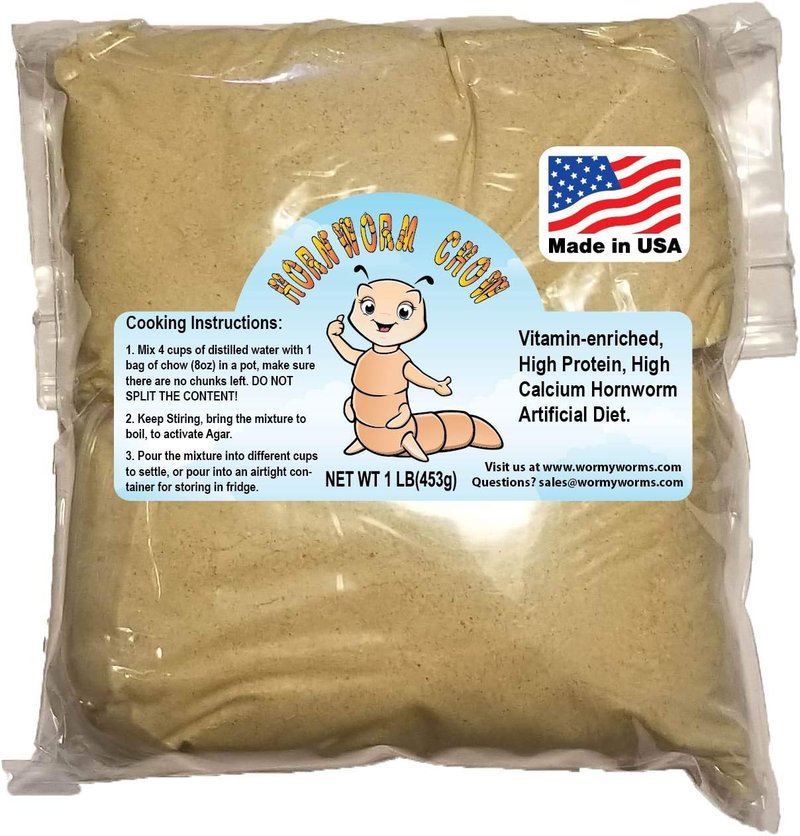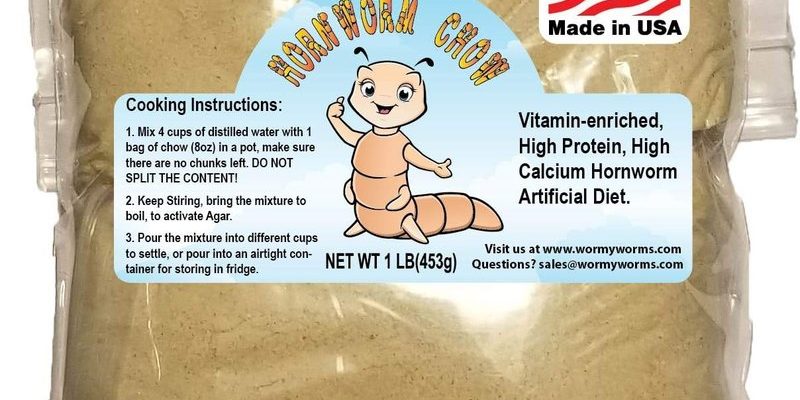
If you’re curious about whether hornworms can thrive on synthetic diets, you’re in the right place. Let’s dive into what’s happening in the world of hornworm feeding and explore the ins and outs of these diets. I’ll explain everything in simple terms, so you’ll feel confident in your understanding by the end!
What Are Hornworms?
Hornworms, specifically the *Manduca sexta* species, are the larvae of sphinx moths. They’re known for their impressive size, vibrant green color, and distinctive horn-like protrusions at their rear end. These caterpillars are not just beautiful; they also play a vital role in ecosystems as they transform from larvae to moths.
You might spot hornworms munching on your garden plants, especially tomatoes and peppers. Most gardeners view them as pests, but they also serve a purpose: if you’ve ever raised them, you know they can be a great source of food for birds, reptiles, and even other insects.
Feeding hornworms has been traditionally straightforward—just give them plenty of leafy greens. But as the interest in raising these creatures has grown, so has curiosity about alternative diets.
What is a Synthetic Diet for Hornworms?
A synthetic diet for hornworms is basically a formulated mixture rather than natural food. Think of it as a smoothie made for hornworms instead of your average meal prep. These diets often contain essential nutrients, vitamins, and minerals needed for growth but are created in a lab instead of being harvested from plants.
These synthetic diets aim to mimic the nutritional content that hornworms would typically get from their natural food sources. This method can be appealing for people who want to raise hornworms in a controlled environment, like for scientific studies or as pet food.
The most common synthetic diet for hornworms is known as “hornworm diet” or “artificial diet.” It’s packed with nutrients and can help ensure the caterpillars grow big and healthy.
Why Consider Synthetic Diets for Hornworms?
You might be wondering why anyone would want to feed hornworms synthetic diets instead of natural plants. Well, there are a few reasons that make this approach worth considering.
First off, synthetic diets can provide more consistent nutrition. When raising hornworms, it can be tricky to find the right quality of leaves, especially if they’re out of season or if pests have damaged plants. A synthetic diet removes that uncertainty.
Additionally, synthetic diets can potentially lead to quicker growth rates. Some studies have shown that hornworms could reach maturity faster when fed formulated diets, which is a tempting prospect for breeders looking to save time. Plus, these diets are often designed to include all the necessary nutrients in just the right ratios, ensuring the hornworms receive optimal care.
Can Hornworms Eat Synthetic Diets? The Research
So, can hornworms thrive on synthetic diets? The short answer is yes! Research in entomology (the study of insects) has shown that hornworms can adapt to synthetic diets quite well. For instance, in various experiments, hornworms fed with these diets not only survived but also grew to mature sizes comparable to those fed with natural foods.
However, there’s more to it than just survival. In some studies, hornworms on synthetic diets exhibited impressive growth rates and overall vitality. This means that, with the right formulation, a synthetic diet can support the healthy development of these fascinating creatures.
It’s important to note that not all synthetic diets are created equal. Just like with human food, the quality of ingredients and balance of nutrients can greatly affect the outcome. So, if you’re considering this option, it’s best to choose a well-researched and reputable synthetic diet.
Comparing Synthetic Diets and Natural Diets
While synthetic diets offer some advantages, natural diets still have their perks. Here’s a quick comparison to help you weigh your options:
- Nutritional Control: Synthetic diets allow for better control over nutrition, ensuring the right vitamins and minerals are present.
- Consistency: Feeding on natural leaves can differ in quality and availability. Synthetic diets provide a reliable alternative.
- Growth Rates: Many studies suggest hornworms grow faster on synthetic diets, which could be beneficial for breeders.
- Natural Behavior: Eating leaves allows hornworms to engage in natural behaviors, which can be a joy to observe.
- Pest Control: With synthetic diets, you’ll likely deal with fewer pests that can damage your plants.
Each option has its strengths, and the choice often depends on your specific circumstances. If you enjoy gardening and like nurturing those natural growth experiences, sticking to natural diets might be the way to go. On the other hand, if you’re raising hornworms for educational or breeding purposes, synthetic diets could be a smart choice.
Possible Challenges with Synthetic Diets
While synthetic diets might sound appealing, they aren’t without their challenges. First, making sure the diet is balanced can be tricky. Not all formulations are created equally, and some may lack essential nutrients that hornworms need to thrive.
Second, there’s the question of palatability. Just because a diet is formulated doesn’t mean hornworms will want to eat it. If the texture or taste isn’t right, they may turn up their noses. It’s like trying to get a picky toddler to eat their veggies—you might have to get creative!
And finally, there’s the potential for over-reliance on synthetic diets. If you find yourself constantly feeding synthetic options, it could become easy to forget the benefits of natural diets. A balance is key!
How to Transition Hornworms to a Synthetic Diet
If you’re considering switching your hornworms to a synthetic diet, here’s a step-by-step guide to help with the transition:
1. **Choose the Right Diet:** Look for a well-reviewed synthetic diet specifically designed for hornworms. Make sure it has all the necessary nutrients.
2. **Gradual Introduction:** Start by mixing a small amount of the synthetic diet with their regular food. This way, they can get used to the new diet without shock.
3. **Observe Their Response:** Keep an eye on how they react. If they seem to eat the mixture without hesitation, you can slowly increase the amount of synthetic diet over time.
4. **Monitor Growth and Health:** As they adjust, track their growth and overall health. Look for signs of vigor and vitality, such as active behavior and healthy appearance.
5. **Adjust as Needed:** Depending on how your hornworms respond, you may need to tweak the ratio of natural to synthetic food until you find what works best.
By following these steps, you’ll ease your hornworms into their new feeding routine and help ensure their well-being.
Feeding hornworms synthetic diets might feel like a new frontier in insect care, but it’s a venture worth exploring. While *Manduca sexta* can thrive on these diets, the key is to choose high-quality formulations and pay attention to their needs. Whether you opt for synthetic or natural diets, remember that the health and happiness of your hornworms should always come first.
At the end of the day, raising hornworms can be a fun and educational journey. So whether you’re a hobbyist, educator, or breeder, understanding these feeding options will help you make informed choices that ensure your hornworms grow healthy and strong!

